The Anxiety Over Ukraine's Entry Into NATO
Both the U.S. and NATO have shown considerable restraint in support of Ukraine against Russia's invasion by their very measured and incremental provision of armament, succeeding only in prolonging the conflict and continuing the suffering of Ukraine's civilian population. Reasons for doing so have centered upon the fear of escalation and the perception that they would be drawn into direct military involvement against Russia in what would become a world war. This continuing fear of confrontation with Russia among NATO's several member nations has not only prevented consensus regarding Ukraine's admission into NATO but allowed Russia to behave as a rogue entity, committing numerous atrocities in direct contravention of international norms and exposing the weakness of the United Nations.
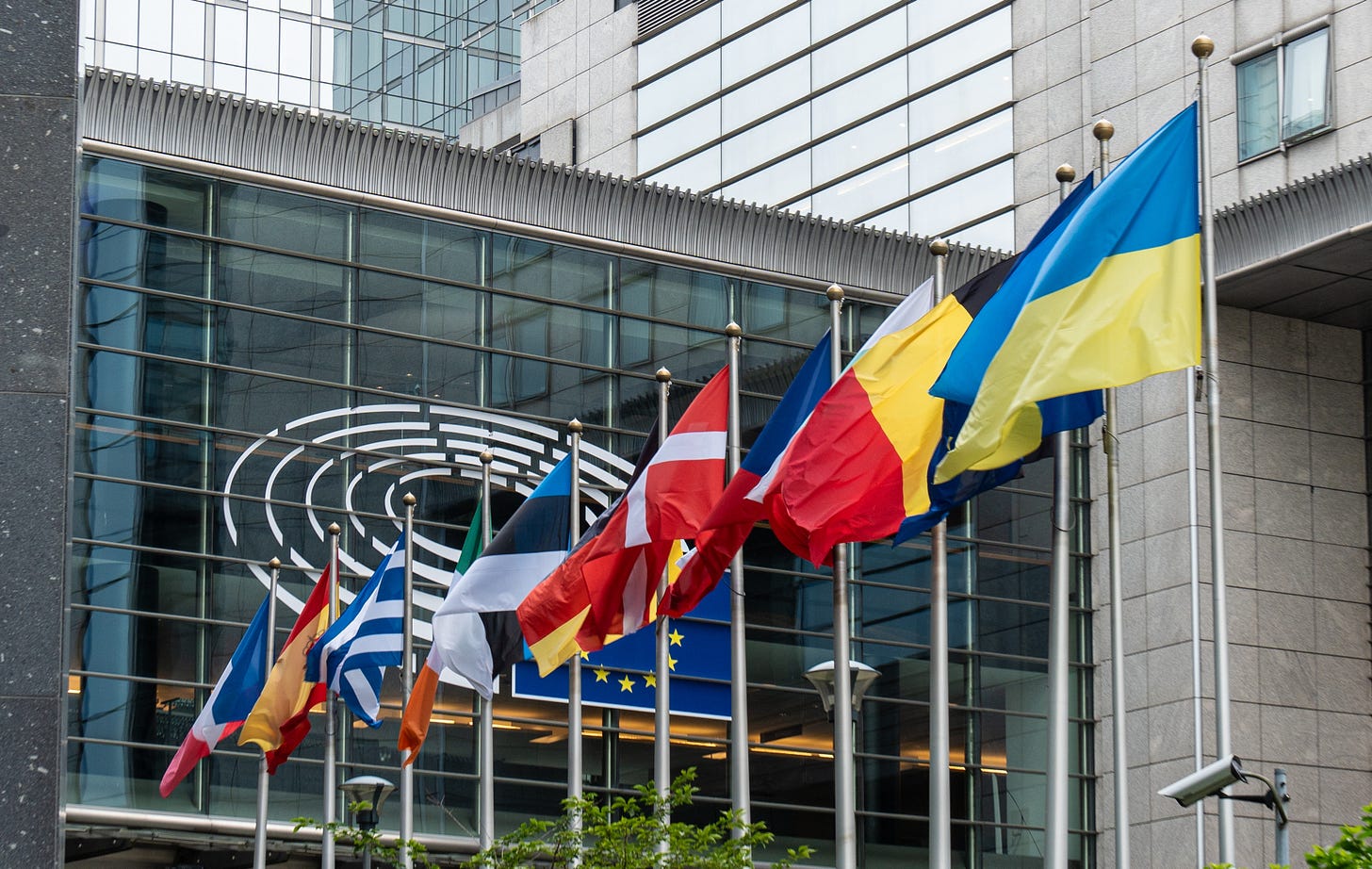
Moreover, the approach overlooks the fact that North Korea has entered the war providing not only military hardware and munitions but tens of thousands of combatants to engage in military operations against Ukraine. The absence of a defining principle by which the West and NATO have confronted this situation deserves review particularly when eastern Europe is threatened by the actions of a united front of belligerents by the likes of Russia, North Korea and Belarus. The latter has provided logistical support and served as both a training site and staging ground for Russia's invasion of Ukraine from the outset. Its armed forces have likewise been deployed along Ukraine's northern border.
One of several reasons Vladimir Putin floated to justify his invasion of Ukraine was the idea that NATO, since 1997, had steadily encroached upon Russia's western border posing a threat to its security. This reasoning, repeated often enough in the absence of any opposing views in the context of rule by an authoritarian regime, transformed into a call-to-arms in defense of Russia's homeland. When this became reality with Putin's 2014 invasion of Crimea and his paramilitary incursion in eastern Ukraine, Europe was alerted to a renewed threat by Russia to again undermine stability of its eastern bloc as it had done after World War II. The threat exploded into outright war with Putin's 2022 invasion of Ukraine prompting the West to respond with military aid. And so the agony of decision-making began: How much and which armament to supply to Ukraine and when, should Ukraine enter NATO or not, should Russia be allowed to annex partially occupied territory, should we limit Ukrainian incursion in Russia or allow targeting of its civilian infrastructure and how do we deal with Russia's partners in crime
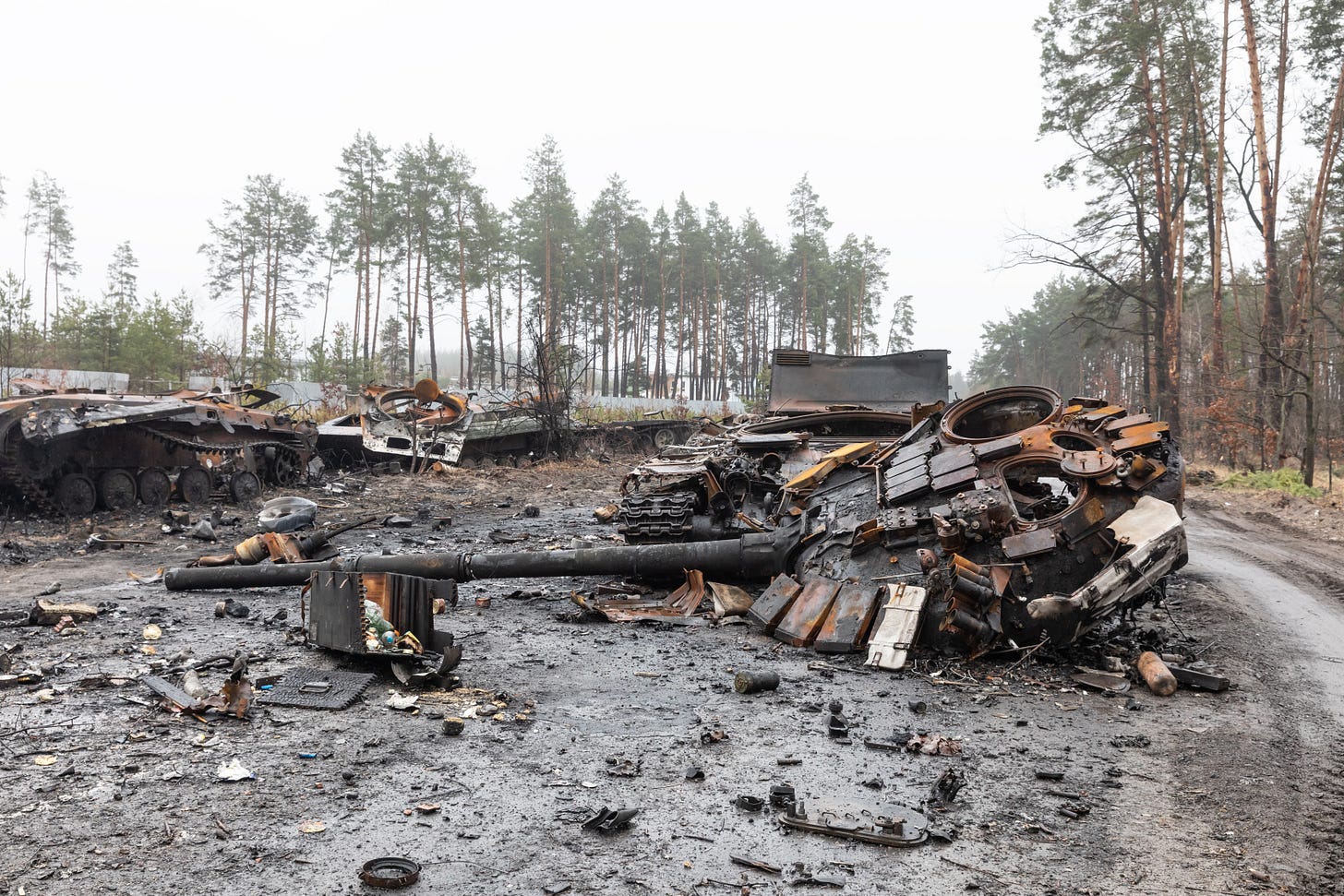
First, this NATO Expansion Thing
Let's get to the root of what is meant by "NATO expansion." The creation of NATO in 1949 as a defensive alliance came in response to Soviet Russia's occupation of eastern European nations after World War II. Specifically, it arose with the intention of deterring further Russian expansion in western Europe. Rather than liberating eastern Europe, much as happened for western European nations, Josef Stalin laid claim to the territory that his military had occupied on its westward march to Berlin in the closing months of. the war. This actually was much the sort of plan of action he intended when first invading Poland, the Baltic nations and Finland in the early years of the war following the Molotov-Ribbentrop Agreement with Nazi Germany. Now, in response to NATO's defensive alliance, the Kremlin felt obliged to establish its own military alliance, the Warsaw Pact, in 1955. In the course of building this border fortress protecting Russia from the West, the eastern European nations found themselves not only robbed of their independence but of their economic potential by a repressive, centralized authority in Moscow. Well before their nightmare ended in 1989 with the dissolution of the Warsaw Pact, they were left with stagnant economies far behind those of their Western neighbors and requiring substantial foreign investment to make up for the gap.
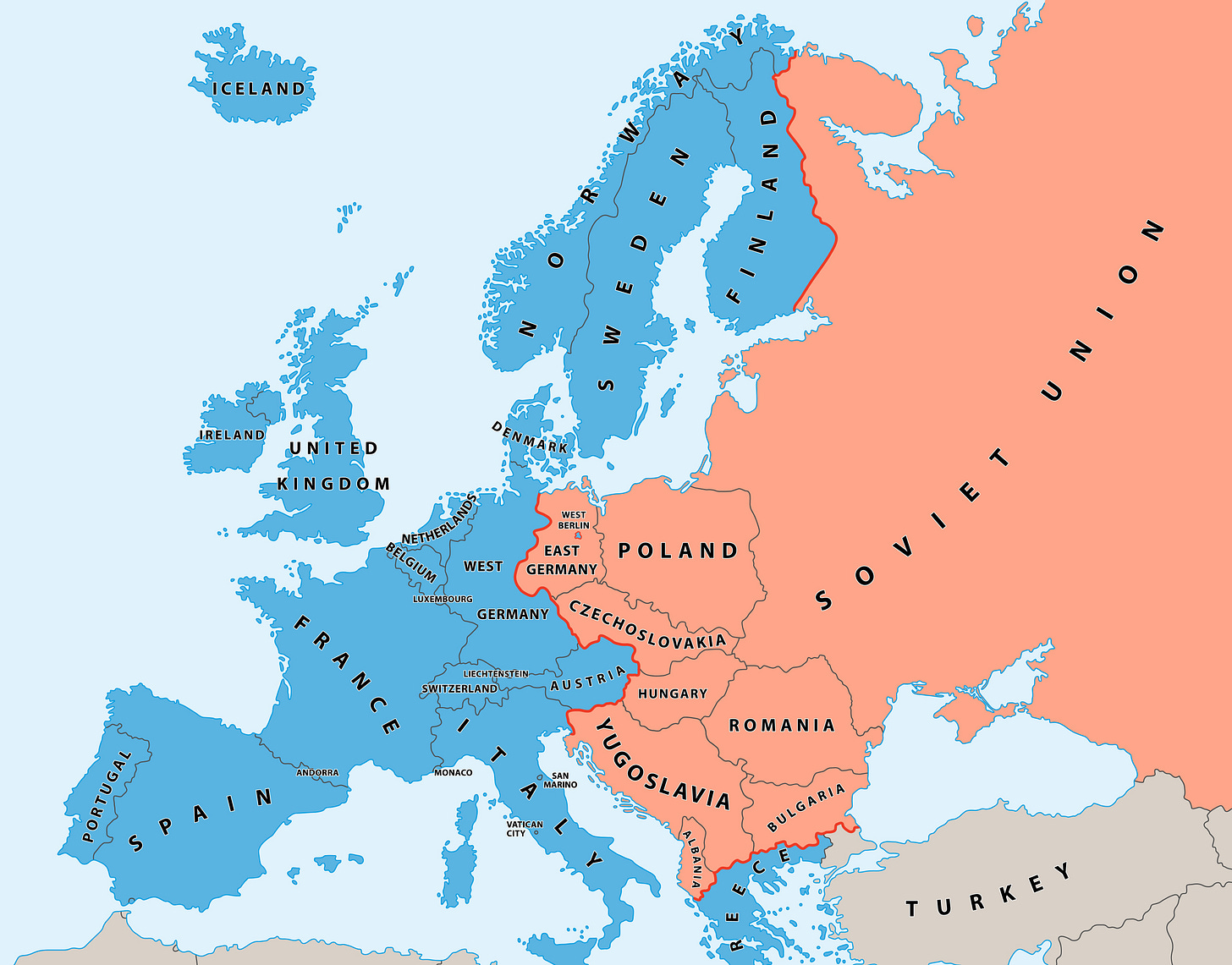
The Cold War that defined the East - West conflict of this period was marked by continued unrest and recurrent rebellion by member nations of the Warsaw Pact against Soviet Russian domination beginning with the 1953 uprising over socio-economic issues in East Germany. The trend continued with the Hungarian Revolution of 1956, the Czechoslovak Revolution (the "Prague Spring") of 1968, and finally the 1989 wave of uprisings that swept the eastern bloc, notably in Poland, Lithuania, East Germany, Hungary and Czechoslovakia. Ironically, Russia appeared more in conflict with its own alliance nations than it was elsewhere in the world. And it was for good reason - all found Russia to be a self-serving, overbearing and corrupted overlord. When they found themselves finally rid of this plague, none wished to relive the experience. Attaining such security could only mean joining NATO rather than to be left alone and threatened by an exceedingly large, formidable and malevolent neighbor. NATO proceeded to double in size from 16 member nations in 1989 to 32 by 2024. The expansion of NATO was not an active process of recruiting nations into its fold so much as a desired outcome on the part of applicant nations to safeguard their futures from Russian incursion.
Finland and the Baltic Nations
Finland and Sweden joined NATO in 2023 and 2024, respectively, complicating Putin's world somewhat unexpectedly. Russia's border with Finland amounts to 830 miles and adds to the 350-mile border that Russia already had shared with the Baltic nations of Estonia and Latvia. It serves as a reminder of the extensive immediate proximity of NATO nations to one that desires command of the Baltic Sea coastline. The southernmost Baltic nation, Lithuania, shares a 420-mile eastern border with Belarus, a close ally of Russia with which it has a Union State agreement. More critically, Lithuania borders the Russian exclave, Kaliningrad, to its south. The latter possesses a 90-mile-long Baltic coastline and the major naval port city of Baltiysk, home to Russia's Baltic Fleet. Finally, Lithuania lies north of the Suwalki Gap, a corridor that connects Belarus with Kaliningrad and presents a strategically vulnerable site for Russian occupation, isolating the Baltic nations from NATO's presence on the European mainland.
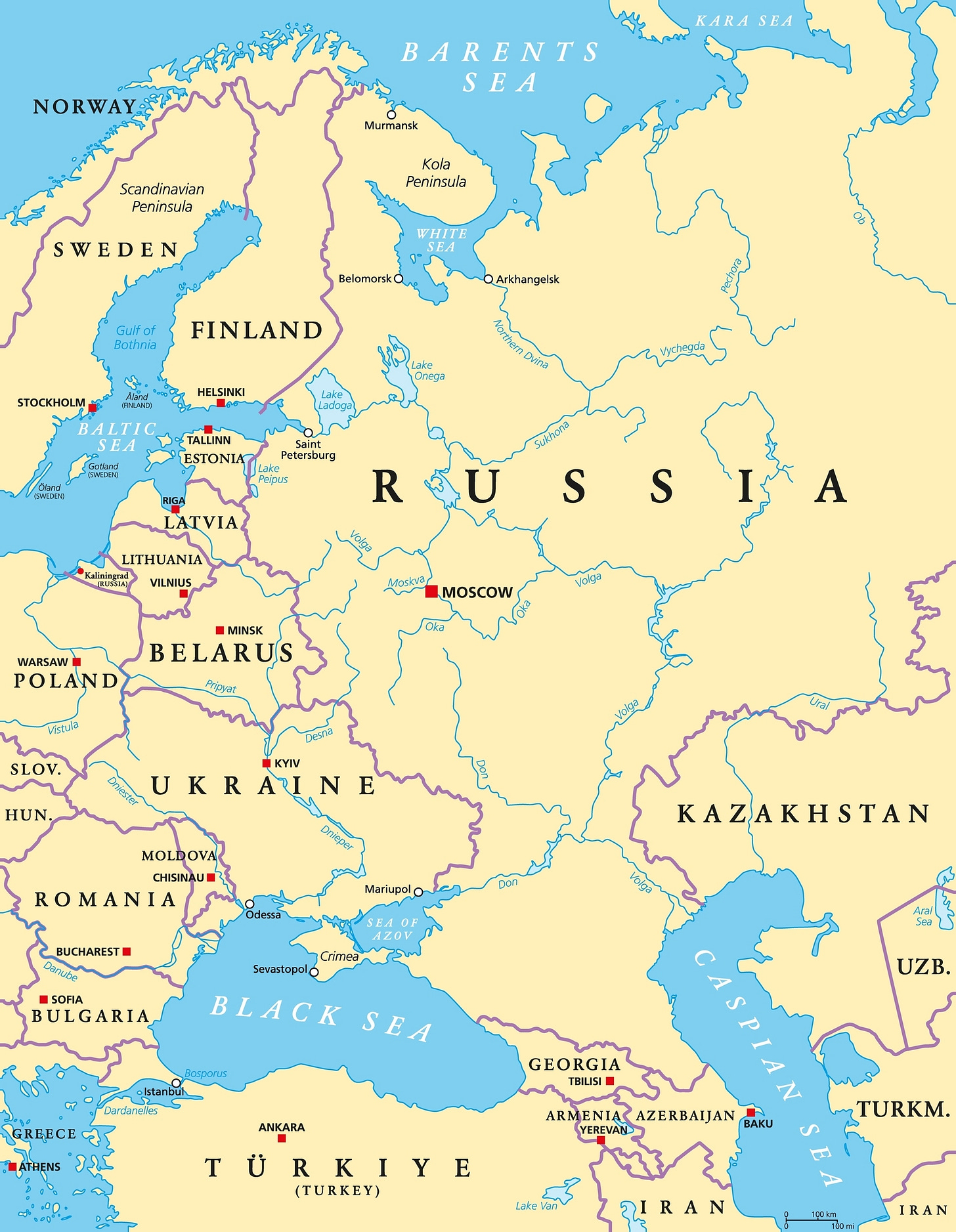
In this respect, Ukraine is no different a "controversial" addition to NATO in the same way the Baltic nations were in 2004 and the two Nordic nations 20 years later. The legally established land border of Ukraine with Russia prior to the 2022 invasion was about 1,225 miles. Regarding straight-line shortest distance as either the crow or missile might fly, both Latvia and Estonia are nearer to Moscow than Ukraine, while Finland is only 10 miles further by comparison. Ukraine was recognized a sovereign nation in 1991 when it declared independence from the Soviet Union.
The declaration followed a referendum in which over 92% of voters were in favor, including almost 84% in the Donbas region of eastern Ukraine. Putin, on the other hand, has claimed that Ukraine as a nation lacks legitimacy as Russian historians have argued that Ukraine's historical roots merely are those of Russia itself. In fact, recent studies have indicated a genomic diversity among Ukrainians that, apart from its history, was "uniquely shaped by evolutionary and demographic forces" influenced both by its geography and ethnolinguistic roots far different than those relevant to Russia's history. Putin's rewriting of historical fact, made public in July 2021, was an attempt to underwrite his justification for the invasion of Ukraine in February 2022 and force it back into submission as a vassal state. As such, his fairy tale rendering is better recognized as a reflection of imperial design than a genuine interpretation of historical reality. Apart of its other considerable attributes, Ukraine's substantial Black Sea coastline and its several deep seaports, notably those of Odessa and Crimea, are as strategic a possession as that in the Baltic region, if not more.
The Euromaidan Revolution of 2013-14 and Democracy
Is NATO membership for Ukraine even as much of a threat compared to its entry into the European Union (EU)? The proximate event implicated in bringing about Russia's incursion into Crimea in 2014 and the subsequent full-scale invasion of Ukraine in 2022 was the Euromaidan protest that erupted in Ukraine when pro-Russian Ukrainian President, Viktor Yanukovych, struck a deal with Putin negating efforts to sign an Association Agreement with the EU. The deal involved $15 billion in loans to be used for debt repayment, removal of trade barriers, resumption of oil delivery to a Ukrainian refinery and a five-year discount of about 30% on the price of natural gas from Russia. The revolt lasted three months resulting in Yanukovych abandoning his presidency and fleeing to Russia for sanctuary.
A new election in late May 2014 brought Petro Poroshenko to the presidency and the reestablishment of efforts to join the EU. By then, three months had passed since Russia's incursion into Crimea and eastern Ukraine creating uncertainty in the country. Despite the circumstances, Poroshenko managed to accomplish the opening of visa-free travel into Europe, reversing gas flow from Europe to make Ukraine less dependent on Russian sources and the shepherding in of an independent Orthodox Church free from the direct influence of the Moscow Patriarchate. However persistent economic stagnation and the slow process of government reform brought down Poroshenko's government and ushered Volodymyr Zelensky to the presidency in 2019 with 73% of the nationwide vote.
After 10 years of conflict with Russia, the desire for a free-speaking democracy inclusive of an independent judiciary and media has remained strong under Zelensky's leadership as have efforts to reform government and bar the wealthy elite from undue influence upon Ukrainian politics and the electoral process. In 2022, Ukraine was given official EU candidate status allowing accession negotiations to proceed. The war, however, and its effect upon Ukraine's economy, have complicated the matter and will likely require an end to the conflict before EU admission can be considered.
As it was in 2013, the idea of Ukraine now landing within the EU and establishing itself as a successful democracy presents a threat to Putin more so than other democracies on Russia's border because of Ukraine's prior stature within the Soviet Union. This, more than NATO membership, would challenge both Putin's national and imperialist ambitions when confronted by a neighbor nation prospering with a renewed sense of its unique cultural identity and heritage. Ukraine's conversion from its prior circumstance within Russia's sphere of influence into one with significant potential for growth would stand in loud contrast to Russia's continuing and widespread domestic state-of-affairs. The situation would not be much different than how prior societies of the Warsaw Pact nations rebounded by association with western Europe. Moreover, a disciplined approach in governance, already demonstrated by Ukraine's current administration, would contrast with Putin's kleptocracy or even that of Orban's administration in Hungary, a current controversial member of the EU. Would Ukraine's ascendency demonstrate to Russia that it might itself aspire to such an outcome?
And What of Security?
Of all the anxieties pertaining to a peace agreement with a recidivist Russia, perhaps the highest pertains to the nature of a "security guarantee" that would ensure Russia does not repeat the same crime in the aftermath. The term seems more an oxymoron given the promises made in past agreements in which Russia was a signatory, not least of which may be counted the United Nations Charter, the Alma Ata Accords and the Budapest Memorandum. Ukraine has every right to retain the territories currently occupied by Russian forces and declare the sham referenda leading to Russia's annexation of these lands as null and void. This requires Russia's defeat. Both its economic circumstances and military capabilities have called into question Russia's ability to continue this supposed "forever" war as its fossil fuel exports continue to be threatened by sanctions and destruction of its storage facilities and refineries. Should such an outcome be possible, Ukraine would have the means to reconstitute itself with its energy resources, agricultural and industrial potentials into an economic powerhouse within the EU ensuring its future as a contributing member
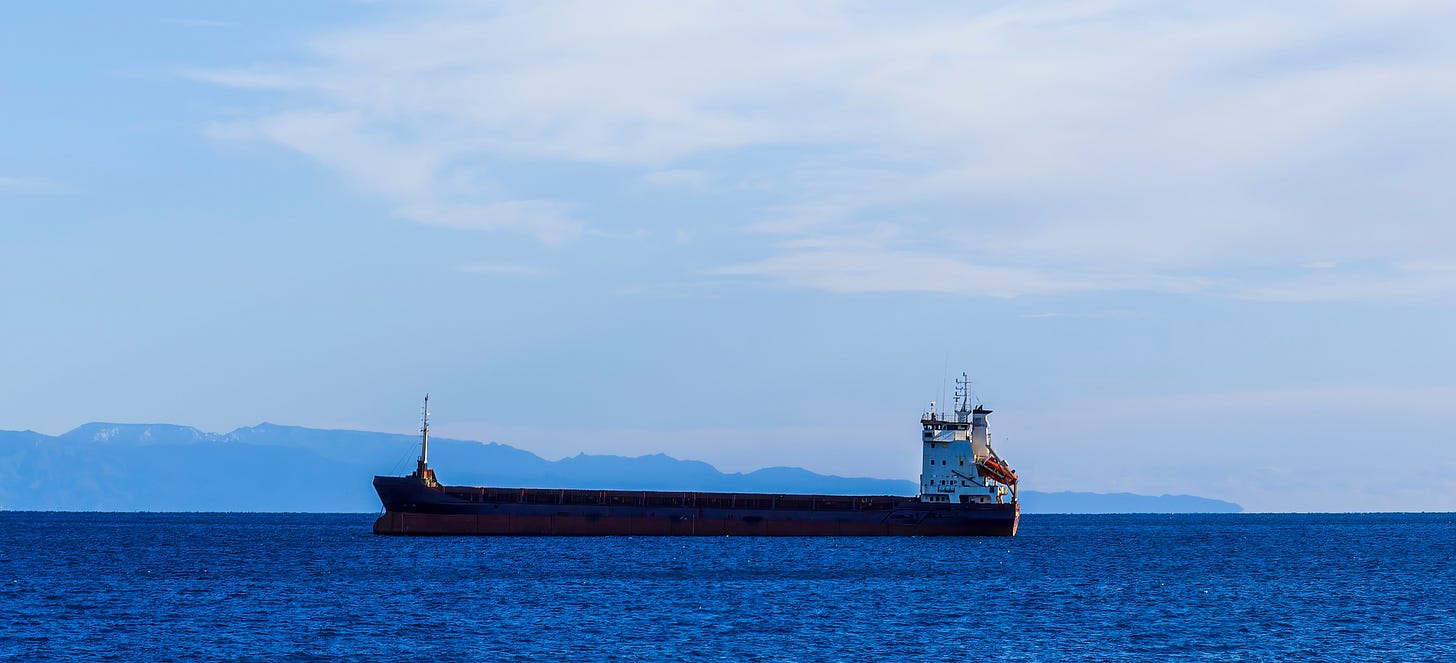
Achieving the sort of security that would allow a lasting peace might come about by quickening Ukraine's accession to the EU and, in doing so, allow it to fall under the protection of the mutual defense clause in Article 42.7 of the Treaty on European Union. When it comes to security, however, the primary entity for the defense of the continent rests in NATO with its centralized command structure and integrated logistics. In reality, confronting a rogue Russia in this unsettled world, especially one led by a ruthless dictator, requires firmness and a determination in order to see this war to an end in a manner that secures the entirety of Ukraine a lasting future. The support of NATO and the EU is needed for Ukraine to prevail to the mutual benefit of both Europe and Ukraine.
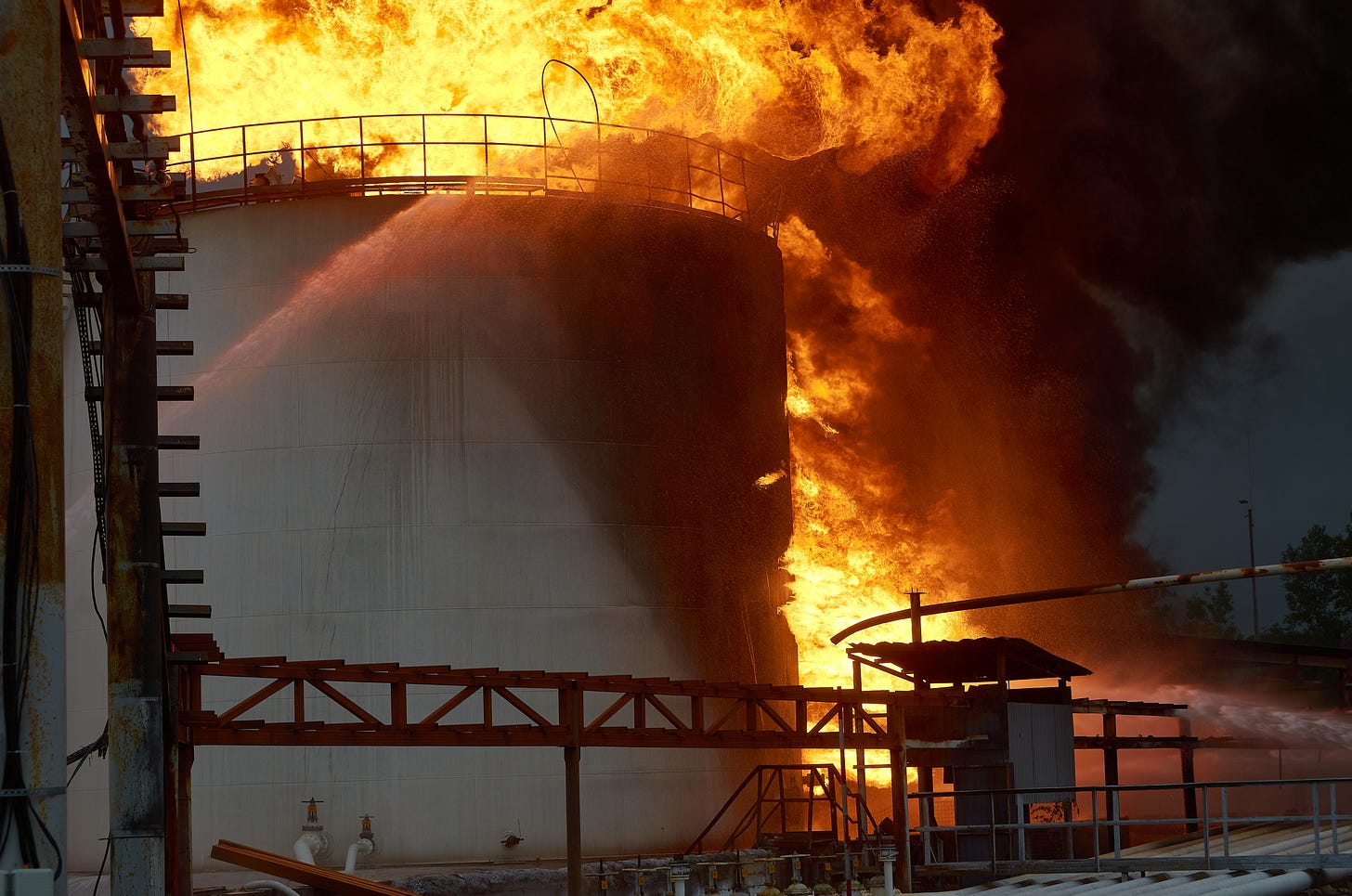
Epilogue
Might it ever have occurred to Russian leaders or to the citizens of Russia that, rather than seeking opportunity to undermine the stability of neighboring nations or regard them as lesser states and so vulnerable to coercion, they might attempt to seek accommodation with them as equals, and abide by more dignified and normative standards of behavior? Until such a magical moment of self-reflection appears, it is worth re-examining Europe's relationship with the warmonger.
When fear is motivated entirely by the need for self-preservation, all argumentation revolves around accommodating the aggressor as if to provide some justification for inflicting injury upon a neighbor and creating regional instability when there is no legitimate reason for doing so. Such a display of fear makes a mockery of what NATO represents when, in the current reality, its strength is comparatively greater than that of Russia which has shown itself far less an adversary than previously advertised. Russia's favored response of waving the threat of nuclear retaliation for any escalation on the part of NATO seems more a self-incriminating declaration of suicide for the response it would receive in return. Ukraine, with the aid it has received from its allies over the past few years, has depleted Russia of much of its military while significantly weakening its economy in the process. Denial of membership for Ukraine within NATO is laughable for what it has to offer in return as a formidable war machine in its own right along with its strategic territorial advantage. What better security guarantee would there be in the long run compared to the quibbling that has occurred otherwise?
Copyright @Kost Elisevich, MD, PhD 2025. All rights reserved. Any illegal reproduction of this content will result in immediate legal action.



